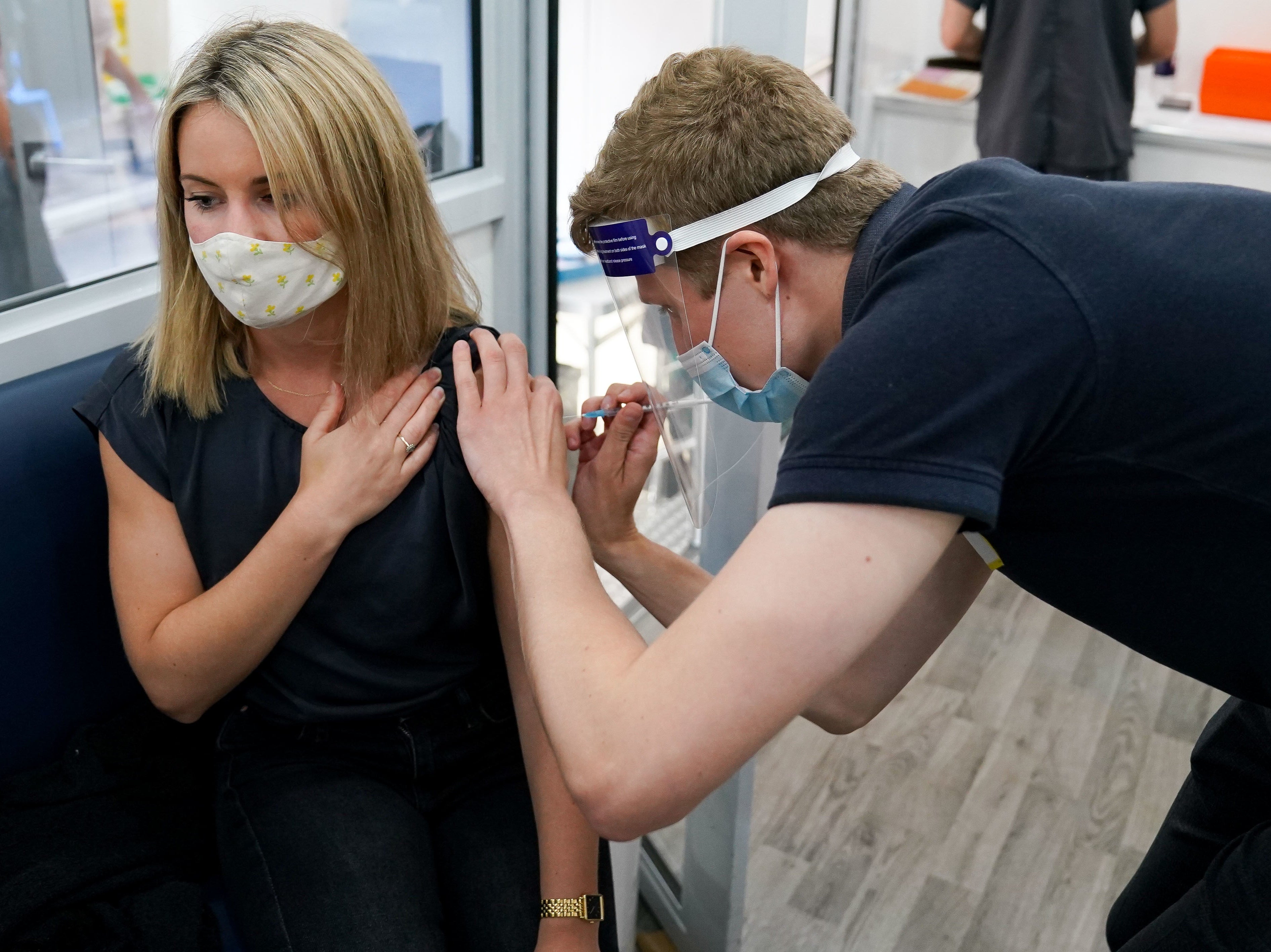Third vaccine dose for 500,000 vulnerable Britons after JCVI advice
But there is still no word on Covid jabs for school pupils aged 12-15 or the autumn booster programme

Around half a million vulnerable Britons are to be offered a third dose of coronavirus vaccine, but a decision has yet to be taken on the awaited autumn booster programme.
Anyone aged 12 or over with a weakened immune system — including patients with blood cancer, advanced HIV or who have had recent organ transplants — will be eligible for the jab following a recommendation from the Joint Committee on Vaccination and Immunisation (JCVI).
Health secretary Sajid Javid stressed it was not the start of the booster programme, which he said would “begin in September to ensure the protection people have built from vaccines is maintained over time and ahead of the winter”.
It comes after The Independent revealed the JCVI is resisting intense political pressure to give the go-ahead for Covid jabs for all Britain’s teenagers because of fears it could disrupt the programme of boosters for vulnerable older people.
There are ever louder demands to protect those aged 12 to 15, with headteachers’ representatives calling for a decision “sooner rather than later” as schools return across England and Wales after the summer holidays.
The JCVI estimates that around one per cent of the UK population, or 400,000 to 500,000 people, will be in line for a third vaccination, which will give adults a top-up shot of the vaccine to extend their protection from the virus. Studies have shown that people who are immunosuppressed have lower levels of antibodies after Covid-19 vaccination.
Early data from one such study, the OCTAVE trial, demonstrated that almost everyone who had a severely weakened immune system mounted some sort of response to the vaccine after two doses. However, in around 40 per cent of people, the levels of antibodies generated were low.
The European head of the World Health Organisation said on Monday that a third shot of the vaccine was “a way to keep the most vulnerable safe” and “not a luxury booster”.
The JCVI is recommending MRNA vaccines, including the Pfizer and Moderna jabs, are used for the third dose.
The AstraZeneca vaccine is not recommended as it is not an MRNA jab, and so works differently to offer protection. There is also more information available about MRNA vaccines and their effectiveness as third doses.
If new data emerges that allows other vaccines to be used in the same way then the JCVI will modify its advice accordingly.
The Moderna or Pfizer vaccines are advised for third doses in adults aged 18 and over. For those aged 12 to 17, the Pfizer vaccine is preferred.
Mr Javid said he had today “accepted the expert recommendations” from the JCVI to offer third vaccine doses to this group of vulnerable people.
He added: “The NHS will contact people as soon as possible to discuss their needs and arrange an appointment for a third dose where clinically appropriate.”
Chair of Covid-19 immunisation for the JCVI, Professor Wei Shen Lim, said: “We want people with severely suppressed immune systems to have the best chance of gaining protection from Covid-19 via vaccination.
“Therefore, we are advising they have a third vaccine dose on top of their initial two doses, as we hope this will reduce their risk of severe outcomes such as hospitalisation and death.
“The decision on the timing of the third dose should be made by their specialist. As a general guide, the third does should usually be at least eight weeks after the second dose but with flexibility to adjust the timing so that, where possible, immunosuppression is at a minimum when the vaccine dose is given.”
Gemma Peters, Chief Executive of Blood Cancer UK, responded to the news, saying: “People with blood cancer are at higher risk of becoming seriously ill from Covid and are less likely to have responded well to two doses of the vaccine, so it is great news that they will now be offered a third dose.
“The NHS now needs to make sure it contacts every person with blood cancer to invite them for a third dose.
“In the past, too many people with blood cancer have been missed out in this sort of blanket communication and it is vital that this time everyone gets an invitation promptly.”
Join our commenting forum
Join thought-provoking conversations, follow other Independent readers and see their replies
Comments
Bookmark popover
Removed from bookmarks